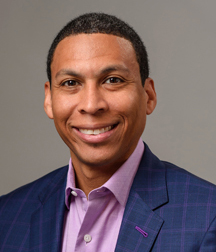
We address a common misconception, even elicited by former President Barack Obama, that increasing health insurance coverage would ultimately reduce emergency department visits.
Explore This Issue
ACEP Now: Vol 37 – No 08 – August 2018Many Americans, even politicians, complain that people go to the emergency department unnecessarily. Perhaps it isn’t our fault as emergency physicians. It isn’t the fault of patients, either, for not knowing where is the “right” place to seek care. Instead, maybe we should look at the incentives our current system provides for the delivery of health care to better understand this phenomenon.
It continually amazes me that un- or under-insured patients must come to our public hospital, via the emergency department, for something as simple as orthopedic follow-up after being diagnosed elsewhere with a broken arm or leg—emergency departments being the only place beholden to EMTALA. We see them, take off their splint, and repeat the X-rays, then the orthopedics resident puts on a new splint and we schedule them for a clinic visit. It’s duplicative and inefficient.
I have even provided some curbside advice to a cashier at a restaurant regarding fracture care. She was wondering if she should return to the emergency department to get her splint converted into a cast because she couldn’t find an orthopedist to see her without insurance. Freed from the confines of the EMTALA mandate, I could openly discuss finances with her and explain the most cost-effective way of obtaining care. I instructed her to save up the cash for the orthopedic visit as opposed to coming back to the emergency department. Otherwise, she would have been responsible for an additional ED bill without getting the definitive orthopedic care she needed.
Our health care system is upside down. Americans believe no one should die or suffer irreparable harm during the moment of their emergency, but we offer next to nothing for prevention or follow-up care. The design of our health care financing system caters only to people with insurance or enough cash to satisfy the appetite of outpatient physicians. People in the margins of society, without significant financial resources, are lucky if they qualify for Medicaid.
Some policy wonks have argued Medicaid is worse than no insurance at all.1 While I don’t agree with that bleak assessment, especially because it does protect individuals and families from financial calamity in time of serious illness, Medicaid does appear to offer substandard options for care, as we see in the journal club article by Vidya Eswaran, MD, notably when it comes to obtaining specialist care.2,3
Pages: 1 2 | Single Page






No Responses to “Insurance Does Not Guarantee Access to Follow-Up Appointments”